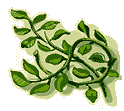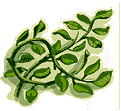![]()
November 2005
 |
Frequently Asked Questions |
 |
![]() What is causing my Navel fruit to turn brown at the bottom of the fruit this year?
What is causing my Navel fruit to turn brown at the bottom of the fruit this year?
A: This phenomenon is called alternaria, a fungal disease, also known as Black rot. The disease occurs occasionally in lemons and navels in Arizona. Alternaria rot is primarily a problem with citrus storage, but can occur in an orchard, and can cause premature fruit drop. Environmental conditions can cause the citrus fruit to split, and then the alternaria fungus gains a foothold. Our intense summer sun can start the splitting, and is most commonly found on fruit that is facing south and or west. Sometimes there is no outside evidence of fruit damage until the fruit is cut open. If the decay has not progressed to the whole extent of the fruit, the remaining flesh can be dissected from the fungal area, and enjoyed for consumption. Some possible reasons for the occurrence this year, may be the abundance of rainfall this last winter, and the unseasonably mild spring, followed by a quick start hot, hot summer. The fruit development stages were not a smooth transition from one step to the next, and therefore, the fruit flesh is growing faster than the rind and the cracking of the fruit starts, and the fungus then begins. Diligence in good irrigation and fertilization practices, and general maintenance can help to prevent fungal diseases. There is no known treatment for curing this condition once it starts. Remove and discard fruit showing signs of this condition..
![]() The citrus fruit has started to turn orange. When will the oranges be ripe to eat?
The citrus fruit has started to turn orange. When will the oranges be ripe to eat?
A: Well, you can start eating your Navel oranges now. Yes, they’re green, but the soon to be orange colored flesh is now yellowish-orange already, and it tastes pretty good. The local fruit stands will be open around Thanksgiving, attracting the winter visitors and the locals. Cooler weather is the main catalyst for the fruit to start turning its “ripened” color. But, eating a Navel orange right now off your tree, still beats a “grocery store” orange, hands down. If your Navel oranges don’t quite satisfy your taste buds yet, let them remain on the tree a couple of more weeks, and try them again. Once the fruit has satisfied your citrus taste buds, enjoy the fruit. One more reason to be thankful summer is over here in Arizona.
![]() Is it too late to fertilize?
Is it too late to fertilize?
A: Early September is the best time for late season fertilizing in the Salt River Valley. If you are just returning from your summer home, and haven’t fertilized yet, it is advisable to wait until March. You can add Disper-sul right now which helps lower the ph of your soil and that helps with the root nutrient uptake. It is 80% sulphur with iron and manganese added. With the high salt buildup in the soil from irrigation, adding this material at least once a year will help reduce the salt accumulation. Also, if you are planning a winter lawn, remember to keep the grass at least three to four feet from the tree trunk. Be advised that over-watering at this time can result in future problems with your citrus trees.
![]() What sort of events are coming up?
What sort of events are coming up?
 |
Greenfield Citrus Nursery2558 E. Lehi RoadMesa, Arizona Saturday, January 21, 2006 8:30 a.m. to 12:00 p.m. Rain or Shine!
Advance Tickets available Greenfield Citrus Nursery Call (602) 470-1556 ext. 1012 for additional information.
|

Field Day Finishes at 12:00 p.m.
| TOPICS INCLUDE | |
| Citrus Pest Management | |
| Citrus Fertilization and Irrigation | |
| Diseases Management | |
| Pruning Citrus and Deciduous Fruit Trees | |
| Low Chill Deciduous Fruit Varieties | |
| "Taste Testing" of Citrus Varieties | |
| Planting Citrus, and much more! | |
Directions to the Greenfield Citrus Nursery:
Take
I-60 (Superstition Freeway) to Gilbert Road
Go north past McKellips Road
(about 8 miles) to McDowell
Turn east on McDowell to 1st road (Lehi
Road)
Lehi Road only runs north at this point
Turn north to 1st
orchard on the left
or
From the west travel east on 202 to Gilbert
Road
Exit North 300 feet to McDowell Road
East on McDowell to 1st Road
(Lehi Road)
Lehi Road only runs north at this point
Turn north to 1st
orchard on the left
follow signs to the Greenfield Citrus Nursery and Orange Patch.
A detailed map is available at http://www.greenfieldcitrus.com/bigmap_main.htm
Persons with a disability may request a reasonable accommodation, such as a sign language interpreter, by contacting (602) 470-1556 and press 1002. Requests should be made as early as possible to allow time to arrange the accommodation.
The University of Arizona, College of Agriculture and Life Sciences, U.S. Department of Agriculture and Arizona Counties Cooperating.

Greenfield Citrus Nursery
John P. Babiarz and Debra L. Hodson, Arizona Growers Since 1972
2558 E. Lehi Rd., Mesa, AZ. 85213-9711
(480) 830-8000 FAX: (480) 833-5705